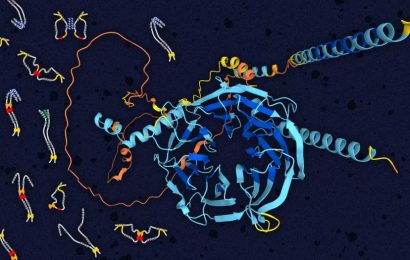NEW YORK (Reuters Health) – Targeted genetic testing of infants with a suspected genetic disorder often reveals actionable variants leading to changes in clinical care, according to preliminary results of the GEMINI study.
As many as one quarter of babies in neonatal intensive care units will have an undiagnosed genetic disorder. Rapid whole-genome sequencing can provide a timely genetic diagnosis to improve neonatal outcome, but is expensive and comes with ethical challenges.
In the GEMINI study, Dr. Jill Maron with Tufts Medical Center, Boston and colleagues are comparing rapid whole-genomic sequencing with a novel targeted genomic platform composed of 1722 actionable genes targeting disorders presenting in infancy.
They aim to enroll 400 hospitalized infants younger than one year of age who are suspected of having a genetic disorder. Infants and parents are tested simultaneously on both genomic platforms. Each laboratory at participating hospitals interpret the results on their own.
In JAMA Pediatrics, the researchers report preliminary results for 113 participants. Genetic testing results were negative in 62 (55%) participants, while in 51 (45%) “an important” genetic variant was detected.
Testing led to significant changes in clinical care in 29 infants (78%) found to have a pathogenic or likely pathogenic variant.
“While there was an overall 73% concordance between platforms for patients tested, of those with a positive finding, 67% received discordant results from the different methods,” the authors report, and this was due to “technical limitations of the targeted platform, interpretation of the variant, and/or filtering discrepancies.”
“By testing two platforms simultaneously, GEMINI has highlighted the need for rapid dissemination of findings to better inform the field about novel variants and highlighted the existing variability in genomic sequencing technologies,” they write.
It’s clear, they add, that the “diagnostic capabilities of genomic sequencing technologies have the ability to affect clinical care but have significant limitations that must be better understood.”
While the GEMINI study is still enrolling patients, it has already “(1) directly informed clinical care in 29 of 37 newly diagnosed infants (78%); (2) diagnosed 3 parents and related family members; (3) identified 51 novel variants; and (4) identified clinically actionable secondary findings in patients and their parents,” they say.
“The majority of results were provided within the first 28 days of life, demonstrating a substantial reduction in time to diagnosis. With a 79% enrollment rate, the GEMINI study reveals a strong parental desire for testing in neonates suspected of having a genetic disorder.”
The GEMINI study is supported by the National Institute for Advancing Translational Science.
SOURCE: https://bit.ly/3dklQLO JAMA Pediatrics, online February 15, 2021.
Source: Read Full Article


